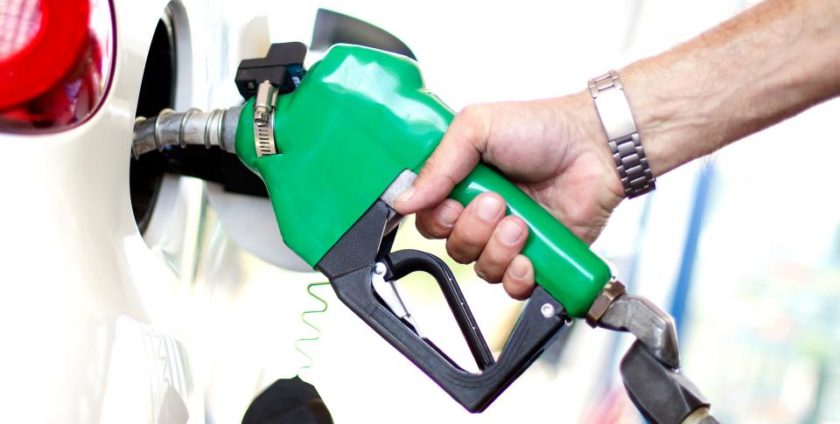Controversy Over Dangote’s Diesel Sulphur Content
The controversy surrounding the sulphur content in the Automotive Gas Oil, popularly called diesel, produced by the Dangote Petroleum Refinery, has yet to abate.
This came as oil marketers stated that despite the allegations of high sulphur in Dangote diesel, no motorist or industrial consumer had registered any complaint against the product.
“We don’t want to be involved in the politics or claims and counter-claims about Dangote diesel, but what I going to tell you is that no transporter, motorist, or industrial consumer has complained about the diesel since we started distributing it,” the National President of the Independent Petroleum Marketers Association of Nigeria, Abubakar Maigandi, stated.
A top official of the Dangote Group said the recent report on high sulphur content in Dangote diesel emanated from individuals who were hellbent on destroying the refinery, describing the report as fake.
The President of the Dangote Group, Aliko Dangote, and some officials of the company had earlier accused the Nigerian Midstream and Downstream Petroleum Authority of importing dirty fuel into Nigeria.
While accusing the international oil companies of plans to frustrate the refinery, the Vice President of Oil and Gas at Dangote Industries Limited, Devakumar Edwin, also accused the NMDPRA of granting licences indiscriminately to marketers to import dirty refined products into the country.
According to Edwin, the Federal Government issued 25 licences for the construction of refineries in Nigeria, but only the Dangote Group delivered on its promise.
“The Federal Government issued 25 licences to build refineries and we are the only one that delivered on our promise. In effect, we deserve every support from the government. It is good to note that from the start of production, more than 3.5 billion litres, which represents 90 per cent of our production, have been exported. We are calling on the Federal Government and regulators to give us the necessary support to create jobs and prosperity for the nation,” Edwin had stated.
He alleged that even though Dangote was producing and bringing diesel into the market, complying with the regulations of the Economic Community of West African States, “licences are being issued, in large quantities, to traders who are buying the extremely high sulphur diesel from Russia and dumping it in the Nigerian market.”
Edwin had lamented, “The decision of the Nigerian Midstream and Downstream Petroleum Regulatory Authority in granting licenses indiscriminately for the importation of dirty diesel and aviation fuel has made the Dangote refinery expand into foreign markets. The refinery has recently exported diesel and aviation fuel to Europe and other parts of the world. The same industry players fought us for crashing the price of diesel and aviation fuel, but our aim, as I have said earlier, is to grow our economy.”
He argued that because the refinery met the international standard as well as complied with stringent guidelines and regulations to protect the local environment, it had been able to export its products to Europe and other parts of the world.
“It is regrettable that in Nigeria, import licences are granted despite knowing that we can produce nearly double the amount of products needed in Nigeria and even export the surplus. Since January 2021, ECOWAS regulations have prohibited the import of highly contaminated diesel into the region,” Edwin stated.
But while the NMDPRA Chief Executive, Farouk Ahmed, was reacting to Dangote, he denied all allegations of sabotage, stating that it was the Dangote diesel that had higher sulphur content than the imported ones.
Ahmed had revealed that the refinery, which had been selling diesel and aviation fuel in Nigeria for months, had not been licensed, stating that it was still at the pre-commissioning stage with 45 per cent completion.
The NMDPRA boss warned that Nigeria could not rely heavily on the Dangote refinery for its fuel supply.
According to him, the refinery had requested the regulator to stop giving import licences to other marketers so as to be the only fuel supplier in Nigeria.
Speaking about quality, Ahmed alleged, “So, in terms of quality, currently the AGO quality in terms of sulphur is the lowest as far as the West African requirement of 50 ppm is concerned.
“Dangote refinery and some modular refineries, like Waltersmith refinery and Aradel refinery, are producing between 650 to 1,200ppm (parts per million). So, in terms of quality, their product is much inferior to the imported quality.”
Reacting during a tour of the refinery by members of the House of Representatives led by the Speaker, Tajudeen Abbas, recently, Dangote asserted that products refined at the world’s largest single train refinery are of superior quality compared to imported equivalents and meet international standards.





